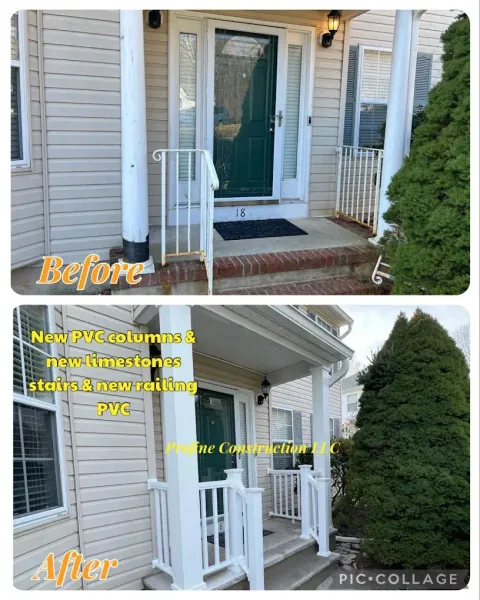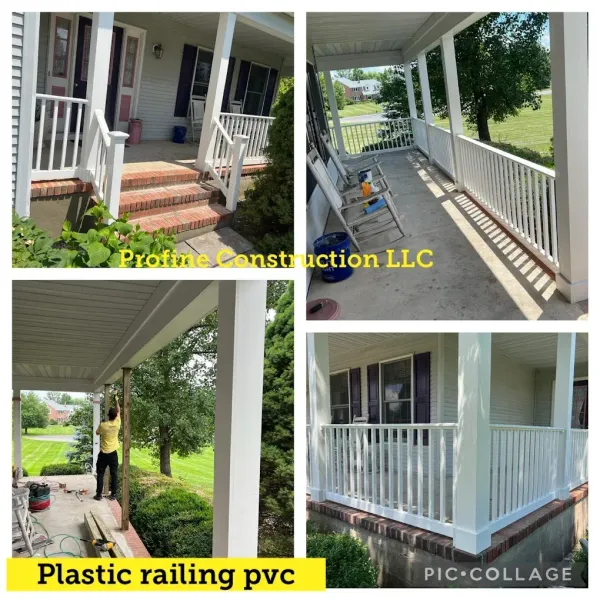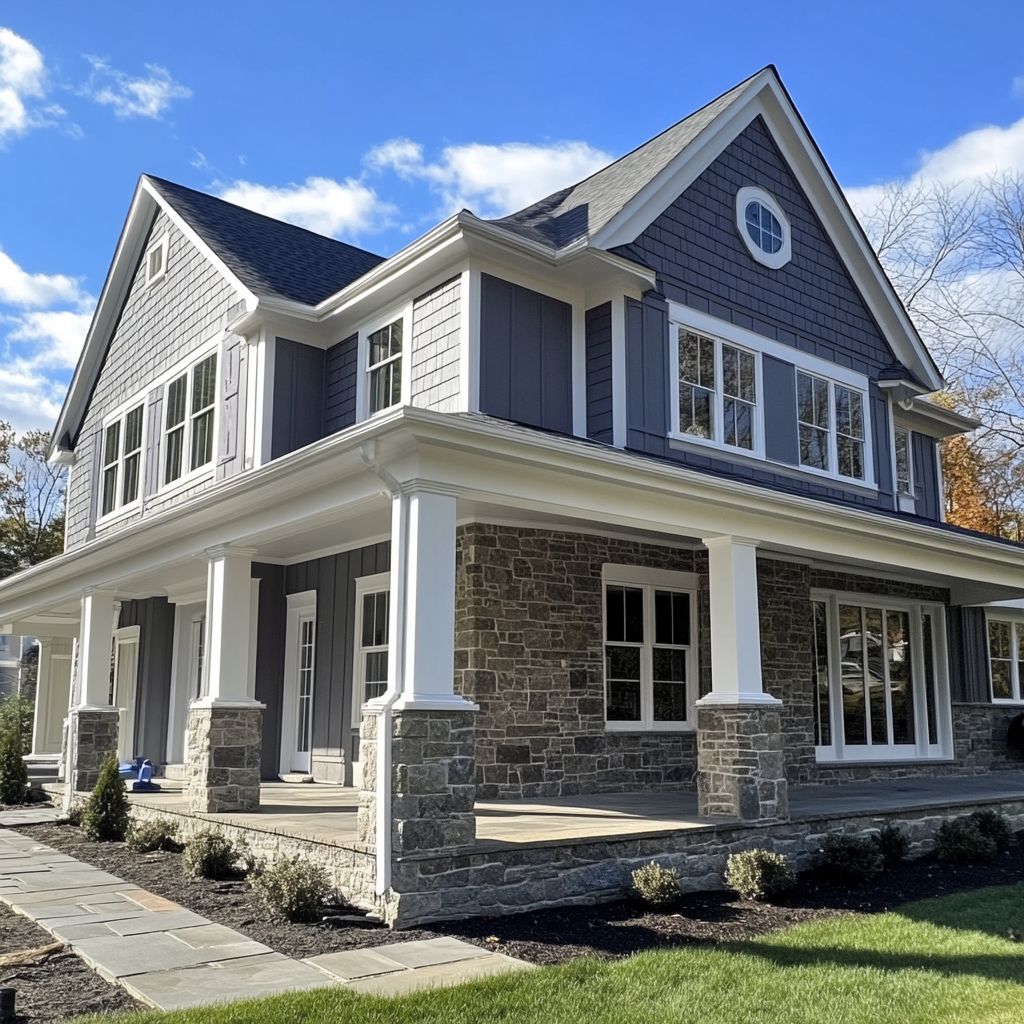When it comes to maintaining your home, your roof is one of the most critical components. It protects you from the elements, provides insulation, and contributes to the overall aesthetic of your property. However, selecting the right roofing contractor can feel like navigating a labyrinth. With countless options available, how do you ensure you're choosing someone trustworthy and skilled? Fear not; this comprehensive guide will arm you with all the knowledge you need to embark on this journey successfully.
How to Choose the Right Roofing Contractor: A Step-by-Step Guide
Choosing the right roofing contractor requires careful consideration and research. Here’s a straightforward step-by-step approach that will simplify this process:
1. Understand Your Roofing Needs
Before diving into a pool of contractors, identify what exactly your roof needs. Is it routine maintenance? A complete replacement? Or perhaps emergency repairs after severe weather? Knowing this will help narrow down your options.
Signs Your Roof Needs Immediate Repair
- Leaks: Water stains on ceilings or walls are often an indicator. Missing Shingles: If shingles are missing or damaged, your roof's integrity is compromised. Granules in Gutters: Excess granules indicate wear on asphalt shingles, suggesting it's time for a repair. Mold or Mildew: These could be signs of trapped moisture leading to further damage.
2. Research Local Contractors
Once you've pinpointed your roofing needs, start researching local contractors. Check online reviews, ask for recommendations from friends or family, and look at their past projects.
Questions to Ask Before Hiring a Remodeling Contractor
- How long have you been in business? Are you licensed and insured? Can you provide references? What warranties do you offer?
3. Verify Credentials
Ensure that any potential contractor is licensed and insured. A lack of these credentials can lead to serious issues should something go wrong during the project.
4. Get Multiple Quotes
Don’t settle for the first quote you receive. Obtaining multiple estimates allows for comparisons in pricing but also gives insight into different approaches various contractors may take towards your project.
How to Evaluate Roofing Contractor Bids
- Look beyond just price—compare materials and labor costs. Determine if there are hidden fees not mentioned upfront.
5. Review Contracts Thoroughly
Once you've selected a contractor, they should provide a detailed contract outlining all aspects of the job—from materials used to timelines and payment schedules.
What to Include in a Remodeling Contract
- Scope of work Payment schedule Timeline Warranty information
6. Communication is Key
A good contractor will maintain open lines of communication throughout the project. If issues arise or changes need to be made, they should inform you promptly.
Understanding Roofing Warranties
Before making any final decisions, familiarize yourself with roofing warranties offered by manufacturers and contractors alike. This ensures you're adequately protected against defects or premature failures.
What Roofing Warranties Actually Cover
Warranties generally cover:
Defects in material Workmanship errors Some warranties may offer extended coverage depending on conditionsRoof Replacement vs Roof Repair: How to Decide
Sometimes homeowners face the dilemma between repairing their roofs and replacing them entirely. Understanding when each option is appropriate can save money and extend roof life.
Factors Influencing Your Decision
Age of Roof: An older roof might warrant replacement rather than repair. Extent of Damage: Minor leaks may only require repairs while widespread issues necessitate replacement. Cost Considerations: Compare repair costs against potential long-term benefits of new roofing systems.Most Common Roofing Problems and How to Prevent Them
Being aware of common roofing issues helps homeowners make informed choices about maintenance and repairs.
Common Problems Include
Leaks caused by poor installation Ventilation issues leading to heat buildup Improper drainage causing pooling waterRoof Maintenance Tips To Extend Roof Life
- Regular inspections—aim for at least twice a year. Clean gutters regularly. Trim overhanging trees that could damage shingles during storms.
How Weather Impacts Different Roof Types
Different climates call for specific roofing solutions due to varying weather conditions across regions.
Best Roofing Materials for Hot Climates
Clay tiles—great insulation properties. Metal roofing—reflective surfaces minimize heat absorption. Asphalt shingles—available in cooler colors that reflect sunlight effectively.How Roof Color Affects Energy Efficiency
Did you know that roof color plays a significant role in energy efficiency? Lighter colors reflect more sunlight while darker shades absorb heat?
Example Table: Energy Efficiency by Roof Color
| Roof Color | Heat Absorption | Energy Savings | |------------|-----------------|----------------| | White | Low | High | | Grey | Medium | Medium | | Black | High | Low |
Flat Roof Repair vs Pitched Roof Repair
The type of roof determines how repairs are handled; flat roofs often require different techniques compared to pitched roofs due to their design characteristics.

Common Issues:
Flat roofs tend toward pooling water which can cause leaks if not properly addressed. Pitched roofs often deal with snow load management during winter months.FAQs About Choosing Roofing Contractors
Q1: What should I look for when hiring a roofing contractor?
A1: Look for licensing, insurance coverage, experience level, previous work references, and warranty offerings.
Q2: How much does roof repair cost?
A2: Costs vary widely based on materials used but expect average prices between $300-$1500 per job depending on severity and complexity.
Q3: When should I schedule a roof inspection?
A3: Schedule inspections after severe storms or every few years as routine maintenance checks regardless of visible issues.
Q4: How do I know if my roof needs immediate attention?
A4: Watch out for leaking ceilings/walls, missing shingles on external inspections, mold/mildew growth indoors indicating possible trapped moisture under shingles!
Q5: What financing options exist for new roofs?
A5: Many contractors offer payment plans; consider home equity loans or personal loans when financing larger projects like full replacements!
Q6: Should I DIY my roofing repairs?


Conclusion
Navigating through how to choose the right roofing contractor doesn't have to be overwhelming! By following these steps—understanding your needs from assessing initial conditions through researching potential candidates—you’ll find not only peace-of-mind but also ensure quality workmanship ensuring longevity Profine Construction LLC deck builders & resilience against Mother Nature's whims!
Remembering key factors like warranty terms along with seasonal climate impacts further tailors decisions leading ultimately towards optimal choices serving both short-term satisfaction along longer-lasting value in home investments! So grab this guide next time thinking about rooftop renovations—and let adventure begin!